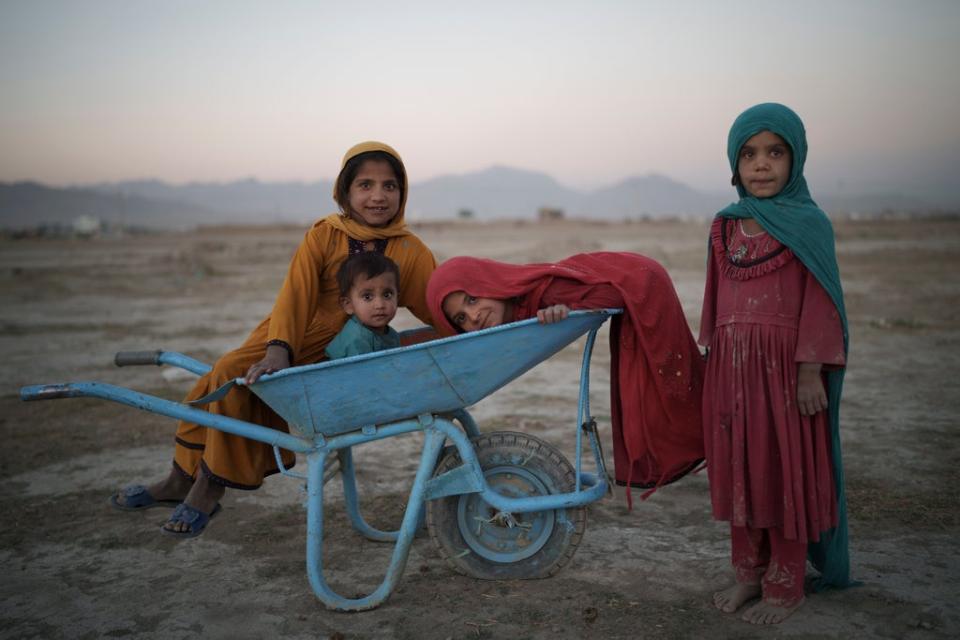‘The climate crisis has not gone away’: Extreme weather disasters kill 17,000 people since start of pandemic

Storms, droughts, floods and other extreme weather disasters have killed 17,242 people since the start of the Covid pandemic, a new report concludes.
Climate disasters have also impacted at least 139.2 million people since March 2020, according to the analysis, which examines how extreme weather and Covid have combined to drive devastating impacts around the world.
A further 658 million people were exposed to extreme temperatures over the same period, the report adds.
The deadliest disaster to occur since the pandemic was a heatwave striking western European countries including the UK, France, Belgium and the Netherlands in 2020, the report says. The extreme heat killed 6,340 people.
The second deadliest disaster was an episode of monsoon flooding in India in 2020, which killed 1,922 people.
Other serious events include Cyclone Amphan, which affected 20 million people across Sri Lanka, India and Bangladesh in the summer of 2020, and an ongoing drought in Iraq and Syria, which has so far affected 12 million people.
The findings come shortly after a landmark report concluded that the climate crisis “is already affecting many weather and climate extremes in every region across the globe”.
The new report, from the International Federation of Red Cross and Red Crescent Societies (IFRC), warns that the Covid and climate crises have worked in tandem to drive human suffering. For example, the need to evacuate from extreme weather events has forced millions to forgo social distancing measures.
“The climate crisis has not gone away while we were concentrating on managing Covid,” Professor Maarten van Aalst, a report author and director of the International Red Cross Red Crescent Climate Centre, told The Independent.
“What we’re seeing very clearly is an increasing number of events having a very clear fingerprint of climate change. We’ve seen this with the North American heatwave and the European floods. We know that the most vulnerable places are also being affected, but we don’t always have the data [to know the full impact].”
“The urgency of dealing with the impacts of the climate crisis, especially in vulnerable countries, is actually higher than before.”
The report lists several examples of countries where the impacts of the climate and Covid crises are overlapping to cause devastating impacts.

One example is Afghanistan, a country gripped by human conflict, Covid and extreme drought. The drought has crippled agricultural food production and killed livestock, leaving millions of people hungry and malnourished, according to the IFRC.
“There’s clearly many factors at play with the suffering of people in Afghanistan, but certainly they all add up and it’s where the worst effects of the climate crisis are playing out,” said Prof van Aalst.
The analysis uses data on extreme weather events from March 2020 up to August 2021. It considered droughts, floods, storms, heatwaves and wildfires.
It finds that sub-Saharan Africa is the region where people are most affected by extreme disasters. More than 46 million people in sub-Saharan Africa have been affected by extreme weather events since the start of the pandemic, the report says.
The second worst-hit region was South Asia, where more than 42 million people were affected by extreme weather disasters.
Francesco Rocca, IFRC president, urged countries to take action to help vulnerable countries cope with worsening impacts ahead of Cop26, the climate summit taking place in Glasgow in just a few weeks’ time.
“The world is facing an unprecedented humanitarian crisis where climate change and Covid-19 are pushing communities to their limits,” he said.
“In the lead up to Cop26, we urge world leaders to take immediate action not only to reduce greenhouse gas emissions, but also to address the existent and imminent humanitarian impacts of climate change”.
Read More
Will we see record numbers of insects in Britain this autumn?
Amazon deforestation reducing rainfall in ‘feedback loop’ threatening crop yields
Gray wolf may be relisted as endangered after Trump removed protection
UK government claims people must keep flying to help cut carbon emissions
Dixie is California’s second largest wildfire in history – why can’t it be tamed?
Public in the dark over how to green their homes, says chief climate adviser

 Yahoo News
Yahoo News 
